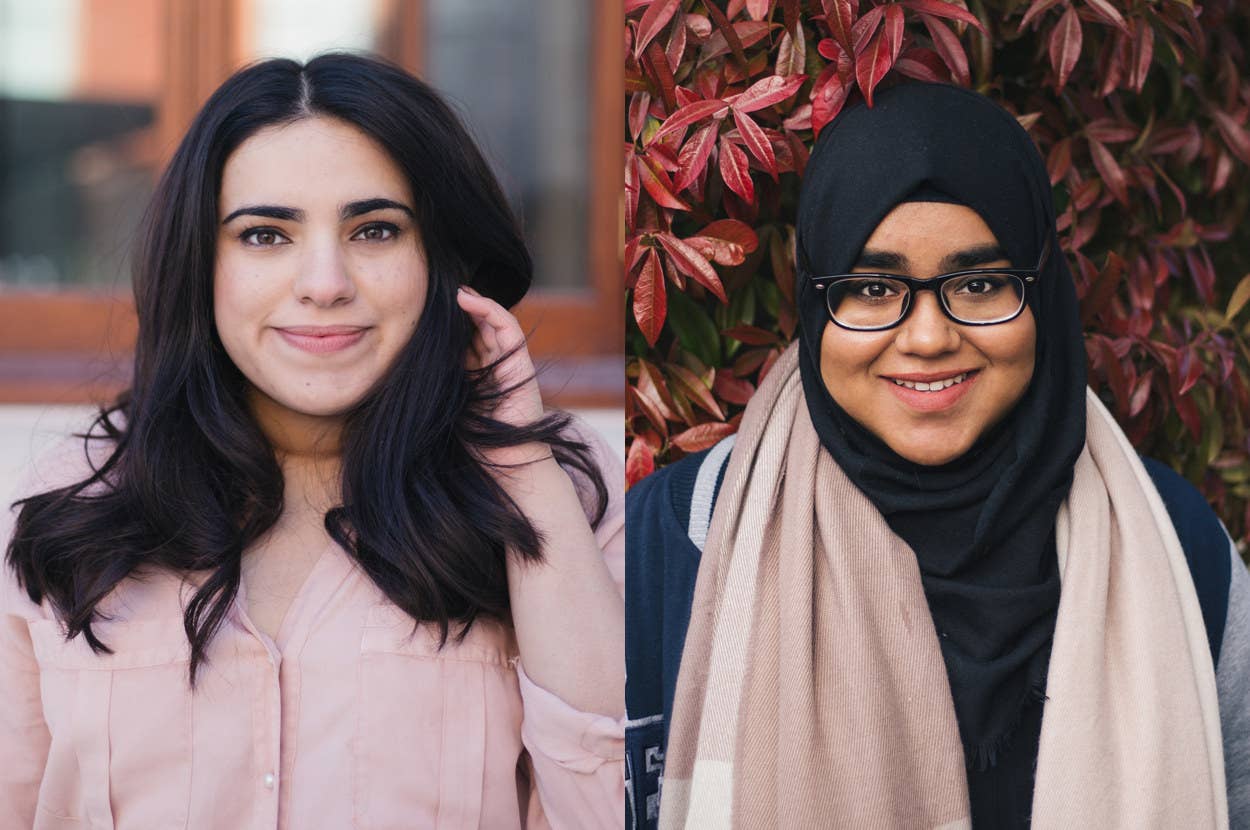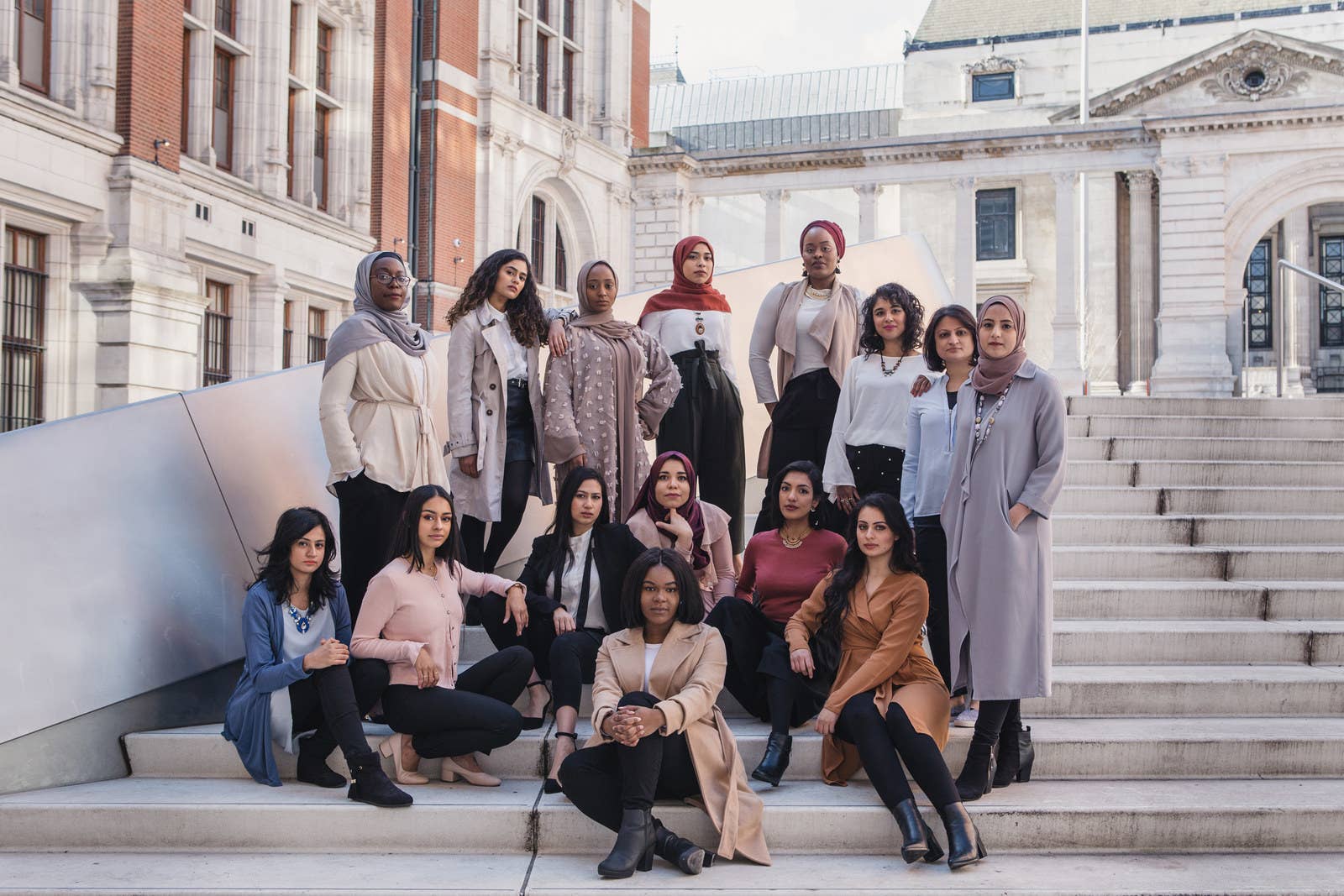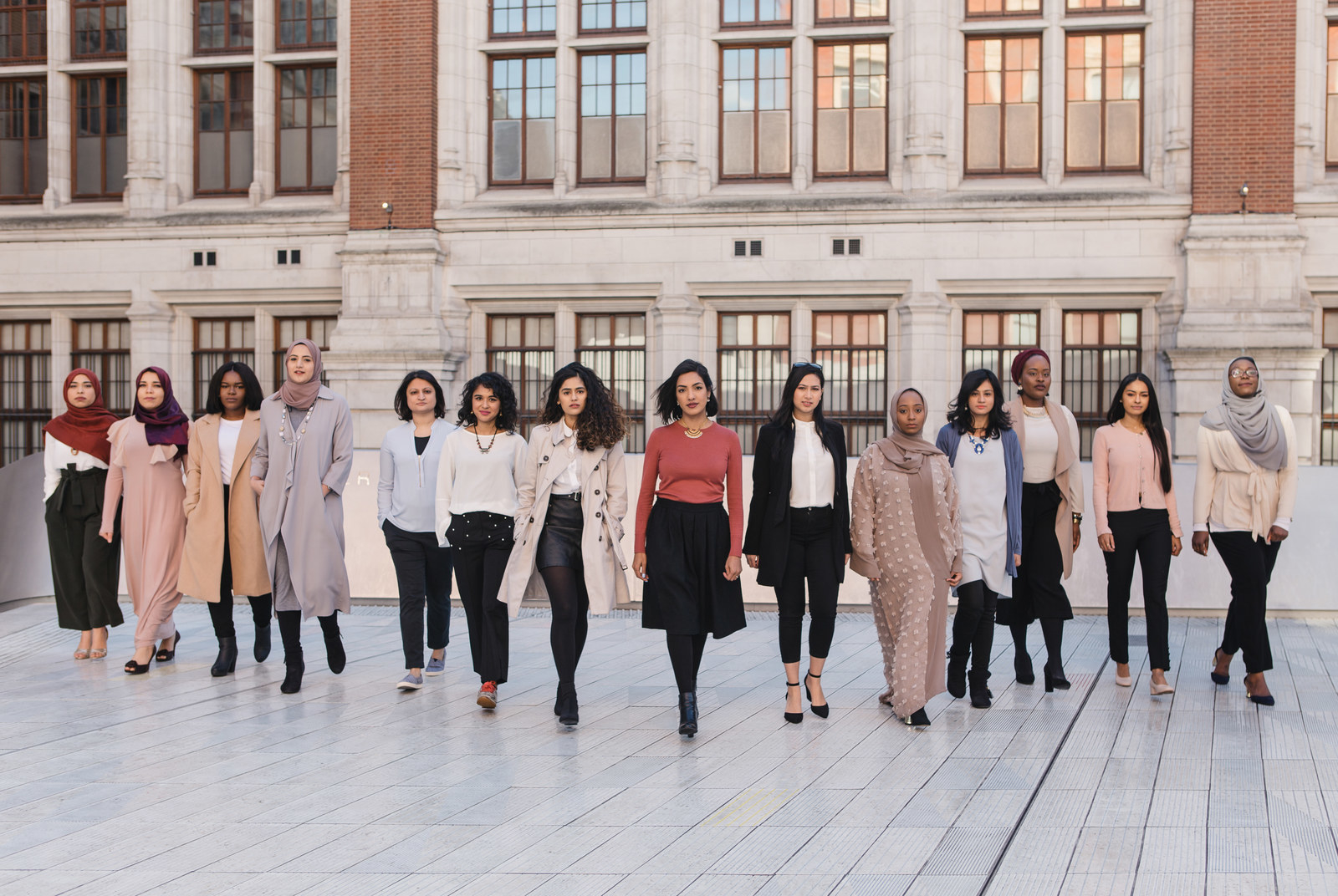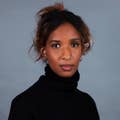Meet Zainab Khan, 24, a freelance digital creative who teamed up with Maaria Lohiya, a 23-year-old photographer and videographer, to create the "Trailblazing Muslim Women" photo series after noticing a lack of representation in the recent Forbes 30 Under 30 list.

Khan said: “Back in January I had been taking in the newly released Forbes ‘30 Under 30’ list and I was curious to see how many people of colour, women of colour, and Muslims were on the list.
“And then I thought back to all those times I looked up to these squad images from award seasons, to powerful businesswomen shoots to fashion shoots and I hadn't seen enough representation – enough of women like me. That was it. I had to do it.”
So Khan, together with Lohiya, created the #TrailblazingMuslimWomen project. Inspired by Vanity Fair and the Hollywood Reporter's “Roundtables” photo shoots, Lohiya captured 21 Muslim women in London.

Khan said: “I have always loved sharing the stories of the people I met and it was time to share the badassery of Muslim women in a more epic way.
“Focusing on Muslim women was important to me because it was an identity that took me a long time to accept.”
Khan said that she wanted to put this together for her 18-year-old self to look up to. She also said that if she could give her younger self a message she would say: “Never compromise who you are for the sake of others.”
The list includes women from a variety of professional and cultural backgrounds. It features:
- Shahnaz Ahmed, a senior designer at Livity and founder at KnitAid
- Fatima Zaman, an advocate at the Kofi Annan Foundation
- Sheeza Shah, the founder of UpEffect
- Leyya Sattar a cofounder of The Other Box and design manager at MYWW
- Rahima Shroom, an illustrator and cofounder of Restless Beings
- Nelufar Hedayat, a journalist
- Aaminah Patel from Two Brown Girls
- Arfah Farooq, a Winston Churchill fellow and cofounder of Muslamic Makers
- Tania Rahman, the founder of ChitChaatChai
- Zohra Khaku, the founder of Halal Gems and director of Muslim Youth Helpline
- Saffana Monajed, a cofounder of Project Ribcage and investment analyst
- Fatima Akhter, a coder and cofounder of Project Ribcage
- Faziah Olu, a cofounder of Project Ribcage and trainee solicitor
- Raifa Rafiq, a cofounder of podcast Mostly Lit and trainee solicitor
- Halimat Shode, the founder of the Black Muslim Times UK
- Malia Bouattia, the former president of the NUS
- Saraiya Bah, a poet and writer
- Nadia Javed, a musician in the band the Tuts
- Alia Alzoughbi, a Bafta-nominated actor
- Hanna Ali, a teaching fellow and PhD candidate at SOAS
- Akeela Ahmed, an equalities campaigner and founder of She Speaks We Hear
Khan said: “I didn't quite realise how important representation was for me. I grew up hiding away from my identity but then I started seeing the world around me and didn't see enough women like me around, not at university and not in the workplaces I've been in so far.
“It's so important now more than ever to shout about our identities. It's so important to create something for the next generation that we lacked growing up.
“No one person is the same as the next, and we wanted to show the diversity on all levels. So it's not as extensively representative of the amazing women in London or the UK or globally.”
She said: “We want everyone to see the diversity of Muslim women – our backgrounds, our education, our achievement, our stories. Each has their own beauty. Hopefully also inspire the next generation of Muslim women into believing in and loving themselves and their identities.”
Khan said: “The key concept I had ... was the idea of being unapologetic. Unapologetic in your identity, and your choices and your passion.
“It’s a way to make people accept you for who you are, rather than trying to fit yourself in their own box.
“That’s why we really tried to make the shoot our own – a bit more lively, a bit more colourful, a bit more candid.”
Although the photos look stunning, Lohiya said it was about more than that. She said: “It wasn’t all perfect outfit and makeup and posing, it was simply gathering these amazing personalities and celebrating them for who they are rather than trying to make them something they’re not.”

